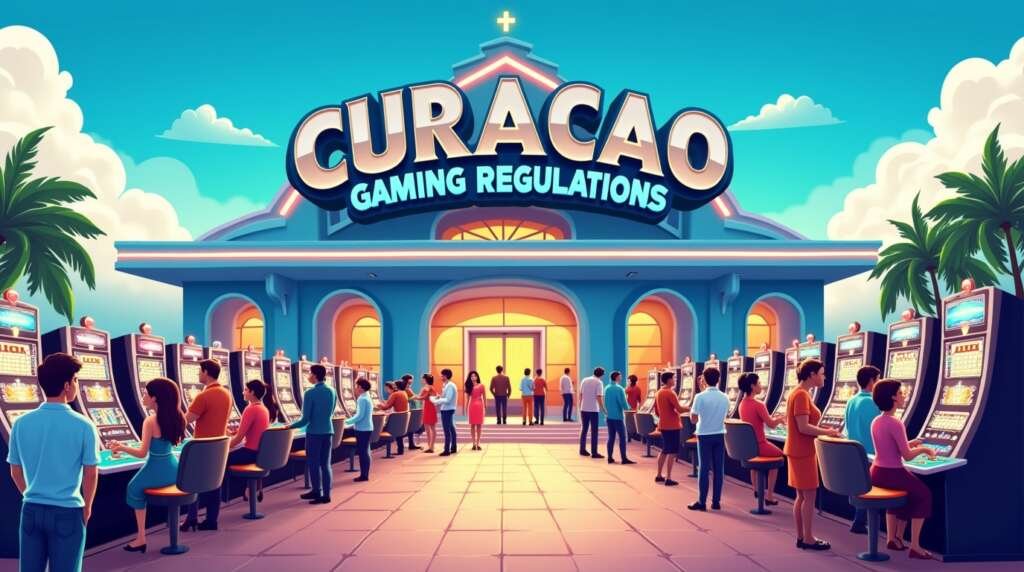For decades, Curaçao has been one of the most recognized names in the world of online gaming regulation. This Caribbean island has been offering gaming licenses in a master and sub-license system. However, things are constantly evolving in the gaming scene.
Following the introduction of the National Ordinance on Games of Chance (In Dutch: Landsverordening op de kansspelen or LOK) in December 2024, Curaçao has begun an unprecedented effort to reimagine its gaming regulatory framework. This attempt is not only to tighten the reins of direct control, but instead an opportunity to empower transparency, improve player protections, and increase legitimate service in the international arena.
The Previous Model: A Straightforward Approach with Caveats
Before we explain what has changed, it is important to understand the previous system. Under the old system, a small number of companies held “Master Licenses” from the government. The master license holders could grant sub-licenses to other operators, creating an unregulated platform of vaguely regulated operators. The simplicity of this model produced no issues for operators wishing to operate from Curaçao, making the region a favoured jurisdiction.
Criticism soon followed everyone’s favourite gaming jurisdiction due to the opaqueness of regulatory obligations, lack of accountability, and unpredictable enforcement of standards, which raised red flags.
Introducing the LOK: Changes to Curaçao’s Gaming Framework
The new National Ordinance on Games of Chance (LOK) has radically changed the Curaçao gaming landscape. Gone are the days of master licenses and sub-licenses. The new structure involves a two-tiered system for oversight and regulation of gaming via Curaçao in alignment with international best practices.
Licenses now exist in two types:
- B2C (Business to Consumer): For operators that provide games directly to players.
- B2B (Business to Business): For software providers and platform developers providing services to B2C operators.
While seemingly simple, this change has major ramifications. It puts each licensee directly in front of the regulator, eliminating the grey area created by third-party sublicensing.
Emergence of the Curaçao Gaming Authority (CGA)
One of the more significant transformations is the advent of the Curaçao Gaming Authority (CGA), an autonomous regulatory authority that will ultimately take the place of the Gaming Control Board (GCB). The CGA will now be responsible for issuing licenses to the operators, monitoring compliance, enforcing applicable laws, and investigating incidents that may violate regulations. It is independent of the government to ensure that any regulatory decisions are not subject to political influence, thereby enhancing investor confidence in the jurisdiction and fostering its growth as a leading regulatory authority in the gaming industry.
The CGA also signifies a more comprehensive application and monitoring process. All applicants will now undergo extensive due diligence which includes background checks on the applicant, submission of extensive business plans, and adherence to rigorous compliance requirements.
Mandatory Local Presence: Important Development
Under the LOK, an online gaming operator must now establish and maintain a local presence in Curaçao, such as:
- Incorporating a legal entity in Curaçao
- Creating an office in Curaçao
- Maintaining at least one functioning server in Curaçao
Why is this significant? It forces more connection between operators and the cultural and economic network of the local law. It ultimately leads to improved accountability for the operator, and it has tax and employment benefits for the island. For many years, Curaçao was seen as a “paper jurisdiction” for gaming businesses. The LOK seeks to change that by making operators an integral part of the overall local economic model.
Compliance, Transparency and Player Protection
A further foundational piece of the new framework is a rigorous compliance regime. Operators are now required to:
- Implement AML and CTF
- Appoint a compliance officer
- Provide ongoing reporting to the CGA
- Undergo independent audits on a regular basis.
They are not just compliance requirements; they are a philosophical shift toward financial integrity and player safety. This creates more confidence among players, and the idea of getting a fair and secure experience in Curaçao-licensed operators gives them a sense of safety. For the industry, it provides a level playing field that allows all legitimate businesses to conduct business without concern that another operator will underprice them by pricing poorly.
A Modern Application Process
Becoming licensed under the new regime is not a piece of cake. The CGA has a full set of comprehensive documents required, such as: business plan, background checks of key personnel, technical specs of the gaming software, proof of financial stability etc. There are also financial aspects to consider such as:
- Application Fee: €4,600
- Annual license fee: €24,530
- Monthly compliance fee: €2050
- Background check fee: €260 for each individual
While the costs for licensing are higher than the costs for licensing under the old regime, the fees are still relatively competitive to other jurisdictions (Malta and the Isle of Man). Most importantly, they represent a reasonable cost for credibility, access to markets around the world, and legitimacy through regulatory processes.
Curaçao Welcoming Crypto and Innovation
One key feature of the LOK is its openness to new financial technologies. The framework empowers crypto usage, as long as operators adhere to AML and CTF obligations. This enables the use of innovative payment methods and attracts a tech-savvy gaming audience. In addition, the license allows a broad range of gaming activities under one roof – from sports betting and casino games to poker and lotteries. This flexibility makes it a compelling choice for both startups and established operators.
Transitional Timing and Industry Response
Current operators received a transitional period to comply with the new requirements. By September 2024, current operators were required to either convert to the new licensing system or cease operations. This strategy allows for a more orderly transition and less disruption to the industry. So far, the industry response has generally been positive. Stakeholders in the industry have welcomed the changes, stating increased legitimacy, access to new markets, and increased consumer trust. Of course, there are challenges, mostly for the small operators who are struggling with the additional administration. But in general, benefits likely outweigh the drawbacks.
The Road Forward: Curaçao as a Global Gaming Hub
Curaçao’s new regulatory landscape represents a clear break from its past. It indicates that the island wants to be a globally recognized jurisdiction for online gaming alongside the best in the world. The CGA leading the way, with the foundation of the LOK legal framework, the island is increasingly on a path to get there. As the dust settles on these reforms, the image is now clear: Curaçao is no longer a quick ticket to the online gaming market; it is now a place where legitimate, responsible operators can operate.




